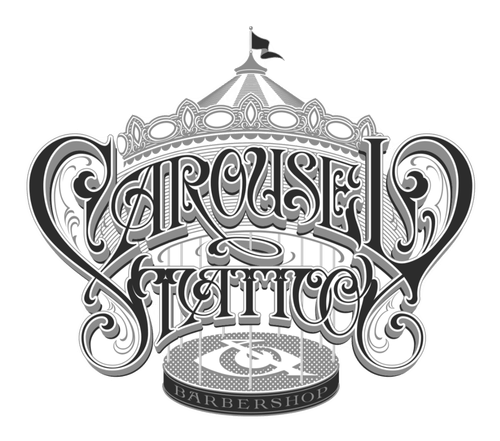An Overview of Private Mental Health Facilities
Private mental health facilities in Toronto offer a range of services designed to address various psychological challenges. These facilities often provide specialized care in an environment that prioritizes patient privacy and personalized treatment plans. Typically, they cater to individuals who may require more intensive support than what is available through community-based programs.
Many private mental health facilities in Toronto focus on integrating evidence-based practices, including Cognitive Behavioural Therapy (CBT) and Dialectical Behavioural Therapy (DBT). These therapeutic approaches are joined by holistic treatments such as mindfulness, exercise, and nutritional counseling, contributing to a comprehensive recovery plan. Furthermore, collaboration with medical professionals ensures a well-rounded approach to mental health care.
What to Expect from Private Treatment
Entering a private mental health facility in Toronto can initially seem intimidating, but understanding what to expect can ease the transition. Patients typically undergo an initial assessment, during which a customized treatment plan is developed to address their specific needs. This plan may include individual therapy, group sessions, and opportunities for family involvement.
Key Benefits of Private Facilities:
- Personalized care that addresses unique mental health challenges
- Access to cutting-edge therapies and experienced professionals
- A tranquil and private environment conducive to healing
- Opportunities for family involvement and education
These facilities are committed to maintaining confidentiality and creating a safe space where individuals can focus on recovery without judgment or external pressures.
Who Can Benefit from Private Care?
Private mental health facilities in Toronto are particularly beneficial for individuals who feel that outpatient services are insufficient for their needs. This includes those suffering from severe depression, anxiety, bipolar disorder, or other mood disorders that significantly impact daily functioning. When community-based support falls short, private facilities offer an alternative by providing intensive therapeutic intervention.
Families often play a crucial role in the recovery process, and many facilities incorporate family therapy as part of their programs. This involvement helps nurture a supportive home environment, which is essential for long-term recovery.
What Are Common Criteria for Selecting a Private Facility?
Choosing the right private mental health facilities Toronto requires careful consideration of several factors:
- Identify the specific mental health needs that must be addressed.
- Research facilities that offer expertise in these areas, looking at both treatment methodologies and staff qualifications.
- Visit potential facilities to gauge their environment and ensure it feels welcoming and supportive.
- Consider logistics such as location, inpatient versus outpatient options, and financial implications, including insurance coverage.
By following these steps, individuals and families can make informed decisions that align with their expectations for care.
Innovations and Challenges in Private Mental Health Care
Private mental health facilities in Toronto are at the forefront of incorporating technological advancements and innovative approaches into their care models. Virtual therapy sessions and telehealth consultations are becoming increasingly popular, offering flexibility and convenience to patients who cannot attend in-person sessions.
However, challenges remain, particularly around accessibility and affordability. While private facilities offer high-quality care, they can be prohibitively expensive for some individuals. Efforts are underway to broaden financial support options, ensuring more people can access the treatment they require without undue financial strain.
Ongoing Research and Developments: The integration of artificial intelligence in treatment planning and remote monitoring continues to evolve, promising more tailored and responsive care.
These innovations reflect the ongoing commitment of private facilities to enhance their services and outcomes for their patients.
Personal Insights from a Health Professional
As someone who has spent over two decades in the mental health field, I have seen firsthand the transformative impact that private mental health facilities in Toronto can have on individuals. One of the most rewarding aspects is witnessing the personalized attention each patient receives, allowing for treatment plans that truly resonate with their unique challenges and goals.
Anecdotal evidence from my practice reflects how patients benefit from the combination of traditional therapeutic methods and holistic approaches. For instance, integrating martial arts into therapy has empowered many clients by fostering self-discipline and emotional regulation.
My experience has taught me that recovery is a journey, requiring dedication, support, and access to the right resources. Private mental health facilities often provide the ideal settings to embark on this path, offering both solace and strength to those ready to rediscover themselves.
How can someone choose the right private mental health facility in Toronto?
Choosing the right facility is like finding a reliable partner in your recovery journey. Start by understanding what specific mental health needs you or your loved one have. Research facilities that specialize in those areas, paying close attention to the treatment methodologies they offer and the qualifications of their staff. Visit a few facilities to get a feel for the environment–does it seem welcoming and supportive? Lastly, consider practicalities such as location, treatment options (inpatient vs. outpatient), and cost, including insurance coverage. Remember, the right facility should align with your personal values and goals for recovery.
What are the main benefits of receiving care at a private mental health facility in Toronto?
Private mental health facilities often provide a level of personalized care that can be challenging to find elsewhere. They typically offer tailored treatment plans that incorporate cutting-edge therapies and are delivered by experienced professionals. The environment is usually tranquil and private, which fosters healing without the added stress of judgment or external pressure. For example, if you’re dealing with severe depression, having access to individualized therapy paired with holistic practices like mindfulness can be transformative. Consider what specific benefits resonate with your needs and how involving your family in the treatment process could enhance your recovery.
Are private mental health facilities in Toronto affordable?
Affordability is a significant consideration, as private care can be expensive. Facilities often offer high-quality care, but costs can quickly add up. It’s crucial to discuss payment options and insurance coverage upfront. Some facilities provide sliding scale fees or financing plans, which can ease the financial burden. If cost is a barrier, explore if there are any government programs or community resources that can supplement private treatment or provide similar services at a lower cost.
What are some common misconceptions about private mental health care?
One common misconception is that private care is only for the wealthy. While costs can be high, many facilities strive to offer various payment plans to accommodate different financial situations. Another misconception is that private care is isolated from community support systems. In reality, many private facilities in Toronto integrate community-based resources and family involvement into their programs, enhancing the overall treatment process. Understanding these nuances can help individuals make informed decisions about their treatment options.
What role does family play in private mental health treatment?
Family involvement is often a cornerstone of private mental health treatment. Facilities usually incorporate family therapy sessions to improve communication and understanding within the family unit, which is vital for long-term recovery. This involvement helps create a supportive environment at home, essential for sustaining behavioral changes achieved during treatment. If you’re considering private care, think about how open your family is to engaging in the therapeutic process and how it can foster a stronger support system for you.
What are some innovative approaches being used in private mental health facilities in Toronto?
Many private facilities are embracing innovation by integrating technology into their treatment models. Virtual therapy sessions and telehealth consultations have gained popularity, providing flexibility for patients unable to attend in-person sessions. Some facilities are exploring the use of artificial intelligence to tailor treatment plans and monitor patient progress remotely. These innovations aim to make mental health care more accessible and effective. As you think about what approach would work best for you, consider how comfortable you are with technology as part of your treatment.
How personalized are treatment plans at private mental health facilities?
Treatment plans in private facilities are typically highly personalized. Upon admission, patients undergo a comprehensive assessment to identify their unique challenges and goals. This assessment informs a customized treatment plan that may incorporate various therapeutic modalities, such as cognitive-behavioral therapy and holistic practices like mindfulness and exercise. Personal anecdotes from those who have undergone treatment often highlight how this tailored approach significantly contributes to their healing journey. If you’re considering private care, reflect on what personalized elements you think would be most beneficial for you.
How do holistic practices contribute to mental health treatment in private facilities?
Holistic practices play a crucial role in comprehensive mental health treatment. Activities like mindfulness meditation, yoga, and even martial arts help individuals develop self-discipline, emotional regulation, and resilience. These practices complement traditional therapy by addressing the mental, emotional, and spiritual aspects of recovery. For instance, at Twelve Mile Recovery, integrating martial arts has empowered clients to feel more in control of their emotions. If you’re exploring treatment options, consider how holistic approaches can align with your personal wellness goals.
What personal experiences have people shared about their time in private mental health facilities?
Many individuals report life-changing experiences in private mental health facilities. They often speak of the profound impact of receiving individualized attention and support from a dedicated team of professionals. Anecdotal evidence suggests that integrating traditional and holistic methods can offer a unique healing journey. For example, patients have found that combining talk therapy with activities like yoga and mindfulness helps them feel more balanced and resilient. If you’re considering this path, think about how these experiences resonate with your own expectations for recovery.
What challenges do private mental health facilities face in Toronto?
Despite the many benefits, private mental health facilities also face challenges, particularly around accessibility and affordability. While they offer high-quality care, these services can be out of reach for some individuals due to financial constraints. Additionally, ensuring that care is accessible to diverse populations with varying needs remains a hurdle. Some facilities are working to broaden financial support options and foster more inclusive practices. If you’re exploring these facilities, it’s worth considering how they address these challenges and whether their solutions align with your needs.
Resources
- Centre for Addiction and Mental Health (CAMH) – CAMH is Canada’s largest mental health teaching hospital and one of the world’s leading research centers in its field. Their website provides valuable information on mental health conditions, treatment options, and resources.
- Psychology Today – Psychology Today offers a wealth of information on mental health, therapy, and ways to improve overall well-being. You can find articles, therapist directories, and mental health resources on their website.
- National Alliance on Mental Illness (NAMI) – NAMI is a grassroots mental health organization dedicated to improving the lives of individuals and families affected by mental illness. Their website offers support, advocacy, and education on mental health issues.
- MentalHealth.gov – This government website provides information on mental health conditions, treatment options, and resources. It is a valuable resource for individuals seeking reliable and evidence-based information on mental health.
- Substance Abuse and Mental Health Services Administration (SAMHSA) – SAMHSA is the agency within the U.S. Department of Health and Human Services that leads public health efforts to advance the behavioral health of the nation. Their website offers resources, programs, and publications related to mental health and substance abuse.












